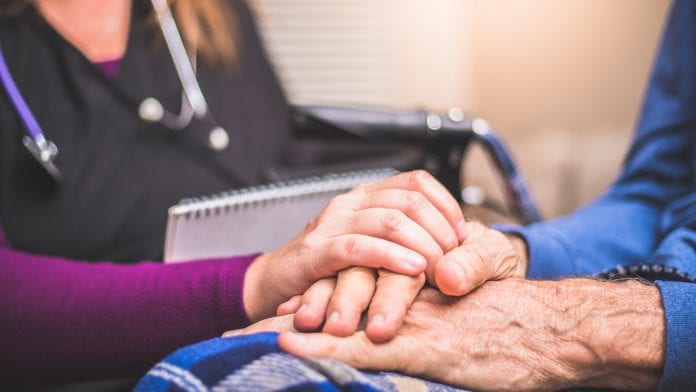
The World Health Organization has published a policy briefing analysing the disproportionate impact of the COVID-19 pandemic on senior populations.
Senior populations have been disproportionately impacted by the pandemic as they are at the highest risk of contracting the COVID-19 infection due to weakened immune systems and pre-existing health conditions. The World Health Organization has published a policy brief analysing at the impact of the COVID-19 pandemic on senior populations, highlighting vulnerability, abuse, neglect, and the impact on health, rights, and long-term care services.
In a video address on the launch of the Policy Brief on Older Persons and COVID-19, UN chief Secretary-General, António Guterres, highlighted that the fatality rate for older people is higher overall and that for those over 80 it is five times the global average. He said: “The COVID-19 pandemic is causing untold fear and suffering for older people across the world.
“Beyond the immediate health impact, the pandemic is putting older people at greater risk of poverty, discrimination, and isolation. It is likely to have a particular impact on older people in developing countries.”
Impact on rights and healthcare
The briefing highlights how over 95% of European COVID-19 fatalities have been people aged 60 or older. Access to healthcare for this population should be a priority, says the report, noting that lockdowns across countries, as well as concentrating health resources on COVID-19, may lead to the marginalisation of senior populations and create barriers to health services. Workforce shortages are also highlighted as a major disruption to the provision of care for the senior populations, which can lead to further isolation and difficulties in accessing care.
The report recommends that countries across the globe ensure that medical decisions regarding seniors are based on individualised clinical assessments, their medical needs, ethical criteria, and be based on the best scientific evidence available. It also recommends that ‘contingency plans and strategies address the high risks faced by older refugees, migrants, and displaced persons, and provide access to health treatment and care.’
According to the report, there have been cases of seniors during the COVID-19 pandemic who have not had an opportunity to give consent to medical treatment and have been put under pressure to sign ‘do-not-resuscitate’ orders – highlighting that ‘everyone has the right to consent to, refuse or withdraw medical treatment, and to express their wishes in advance.’
Seniors in care facilities
The UK has seen a particularly high number of deaths in care homes and Madrid has reported a total of 4,260 COVID-19 deaths in residential care facilities in March alone.
The report states: ‘The picture in other parts of the world, especially where the virus is more advanced, is equally grim. Nearly 7,500 residents of care homes have died of COVID-19 in France, making up almost a third of all coronavirus deaths, and similarly in the United States, one of every five deaths attributed to COVID-19 – more than 7,000 – have occurred in nursing homes, according to news reports.’
It puts forward the recommendations for countries to ensure continuity of adequate care services for older persons such as mental health services, palliative, and geriatric care, including through support for unpaid care givers in homes and communities, and for paid care workers who provide home-based care or care in institutional settings.
Abuse of seniors on the rise
The briefing also highlights the rising problem of violence, neglect, and abuse, of elderly people during the COVID-19 pandemic, noting that ‘there have been widespread reports of increased rates of violence against women, and particularly intimate partner violence, exacerbated by lockdown conditions.’
Age Platform Europe (APE) has also brought attention to the issue, highlighting that many practices in the current COVID-19 pandemic can be labelled as abusive, such as refusal to hospitalise older people and their de-prioritisation in access to care are some of the most blatant breaches of the human rights of older people. APE has called for the EU to support member states in their efforts to tackle elder abuse.
Anne-Sophie Parent, Secretary-General of AGE Platform Europe, said: “The language we have heard and the practices we have observed during this crisis are tragic and explicit reminders that ageism is structural in our societies. Ending elder abuse requires nothing less than ending ageism as a structural factor of discrimination and stereotyping.
“Older victims of abuse and other types of offences have always experienced greater challenges in accessing support services and to be heard by law enforcement bodies. Today we urgently need public policies to address elder abuse and provide specific support to victims and survivors.”
The World Health Organization’s policy brief highlights that policy responses need to incorporate the needs and rights of older people, especially women who represent a high portion of the senior population and who are vulnerable to abuse.
The brief puts forward recommendations to strengthen services in order to prevent and protect older persons from any form of violence and abuse, such as domestic violence and neglect, and to ensure that visitor policies in residential care facilities, hospitals and hospices balance the protection of others with their need for family and connection.

























